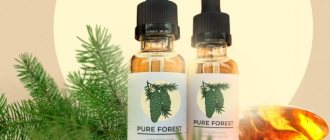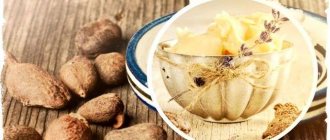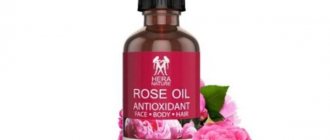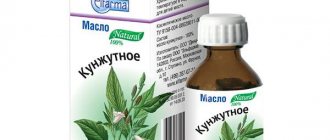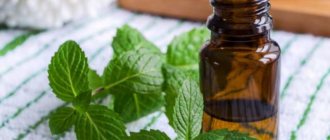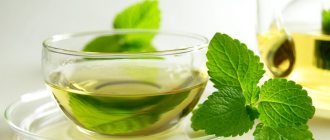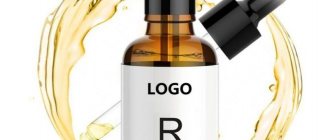Everyone knows that lemon is one of the healthiest fruits. It has a rich chemical composition, which allows this product to be used to solve various problems, not only related to health, but also cosmetic ones. Lemon essential oil, which is obtained by cold pressing, has the same properties as the fruit itself. Even in ancient times, it was used to prevent serious diseases: typhoid and plague. At the same time, it was revealed that it has a whitening effect on the skin and also relieves inflammation. Since then and to this day, this product has been actively used in cosmetology.
Characteristics and description
The history of aromatic oil is quite vague. The birthplace of the citrus tree is called China, South India and Northern Burma. There is a version that in these countries they began to extract an oily concentrate from yellow fruits back in the Bronze Age, which began 3000 years before the birth of Christ. The benefits of ether were known to the ancient Greeks and Romans. They determined that the liquid was a good antiseptic, so they treated wounds with it and used it for various ailments.
But perhaps the most extensive use of lemon oil was found by the Egyptians. Using this product, they cared for hair and skin, treated typhus and poisoning, added a pleasant aroma to their homes and clothes, and also performed embalming and religious ceremonies. Thanks to the crusaders, lemon came to Italy (5th century).
Commercial production of extracts from it was established in Europe much later, from the middle of the 15th century. After about 2.5 centuries, the healing properties of ether were recognized by official medicine. Today, concentrate production is especially developed in Southeast Asia and on the Mediterranean coast.
Interesting to know. America was introduced to lemons by Christopher Columbus.
The raw material for making butter is the zest. It is processed in two ways, each of which has its own advantages and disadvantages:
- Cold pressed at 37–40 °C. Allows you to obtain the most valuable product. Oil extracted through manual labor is especially valued. However, the cost of such ether is quite high.
- Distillation (distillation of raw materials with steam). The method was known 5 thousand years ago. In this case, the opposite is true: the affordable price is compensated by the less rich composition of the finished drug.
It is estimated that about 3000 fruits are required to produce 1 liter of lemon extract.
The correct natural product has a pale yellowish-green hue that turns brown as the oil ages. The aroma is fresh, cold, slightly bitter, which is easily recognizable as lemon. The texture, like that of other esters, is quite dense, viscous, and oily. The extract is rarely used in its pure form. Usually it is diluted with base oils (for example, peach) or dripped into finished cosmetics.
Beneficial features
Lemon essential oil has a rich composition that provides the benefits of a natural product:
- vitamins of group B, as well as PP, A, E, C, etc.;
- citral;
- terpinone;
- potassium;
- magnesium;
- camphene;
- phellandrin, etc. - only about 200 components.
One of the most valuable ingredients here is citral. It plays the role of an antimicrobial, anti-inflammatory agent, beneficial for the eyes and normalization of blood pressure. The most dangerous component of lemon ester is linalool, which can cause an allergic reaction characteristic of citrus fruits.
The benefits of natural oil obtained from lemons are not limited to antiseptic, disinfectant, and anti-inflammatory effects. The cosmetic product stimulates blood circulation and regulates the functioning of the sebaceous glands, cleanses and refreshes the skin, has a positive effect on blood vessels, and is a rejuvenating, exfoliating, restorative agent. For these reasons, lemon ether is beneficial for mature, aging epidermis.
By the way. It can be used at the first signs of aging at the age of 30+. The younger generation will also appreciate the properties of the oil, which helps get rid of teenage acne.
Composition and properties of lemon oil
The value of lemon oil for skin health is explained by the combination of organic compounds in its composition. It cannot be said that the composition is unique - any citrus oil except orange has a similar one. But each component is useful on its own, and in a natural complex composition, such as any essential oil, the beneficial properties of one are also successfully complemented by the properties of the other.
- 90% of the oil is limonene, a hydrocarbon compound of the terpene group. It has a pronounced aroma and is found in all citrus oils and in smaller doses in the oils of other plants (fennel, parsley, mint, pine, etc.). A natural antiseptic, due to the fact that it predominates in the composition, lemon oil has antibacterial, anti-inflammatory effects, cleanses the skin;
- Citral is an organic compound of the class of aldehydes, alcohols without hydrogen, a potent substance that in large quantities can cause skin irritation - therefore, for people with sensitive skin, it is necessary to conduct an allergy test. Acts as an antiseptic and promotes tissue healing;
- Coumarin is an ester, a chemical compound that contains acid radicals. Stimulates blood flow, so regular treatment of the skin with lemon oil improves complexion;
- citronellal is an organic compound of the terpenoid class, an aldehyde. It has an anti-infective effect, so the oil helps in the treatment of skin diseases;
- geraniol is an alcohol of the terpenoid class, has a bactericidal effect;
- phellandrene is a hydrocarbon of the monoterpene class, has antiviral and antifungal effects;
- camphene is a monoterpene, hydrocarbon, natural antiseptic;
- vitamins of group B, PP, E.
Natural lemon essential oil contains 90% limonene, an organic compound that is easily absorbed by the body.
Benefits of facial oil - table
| Skin type/problem | Properties of lemon oil |
| Normal skin | It is useful to add oil to cosmetics to maintain skin tone and prevent age-related changes. It also improves the effect of cosmetics and other oils. |
| Dry skin, peeling, itching, pale skin | Removes the stratum corneum of dead cells, increases blood flow, improves complexion, eliminates flaking and itching. |
| Oily skin, acne, blackheads, enlarged pores | Stimulates the functioning of the sebaceous glands, normalizes sebum production, opens pores, and helps cleanse the deep layers of the skin. It has an anti-inflammatory effect, dries and treats acne. |
| Infectious diseases, rash, herpes | It has an antiseptic effect, disinfects, dries out purulent formations, and treats skin damage - wounds, ulcers. |
| Age spots, freckles | Whitens the skin, lightens age spots. |
| Cuperosis | Helps make the visible network of capillaries less noticeable. |
| Aging skin | Stimulates the renewal of epidermal cells, blocks the production of the enzyme elastase, which breaks down collagen and elastin tissue. |
Indications for use
Citrus essential oil shows the most pronounced results on oily, combination, problematic, sagging skin. On sensitive dermis, it can cause an allergic reaction, and it can tighten dry skin even more.
The list of problems for which it is advisable to use lemon oil looks like this:
- greasy shine;
- black dots;
- acne, pimples;
- enlarged pores;
- dark spots;
- not too deep wrinkles;
- decreased skin elasticity;
- vascular network;
- bad complexion.
Where to buy and how to store
Lemon essential oil is sold in pharmacies and stores selling organic, natural products. You can also buy it online, but then you will not be able to 100% check the quality of the product. In this case, at least evaluate it visually.
It is advisable that the product be poured into a dark glass bottle with a tight lid. The presence of a dispenser or dropper will be an advantage - it’s more convenient to measure out the ether drop by drop. Also, lemon oil is often packaged in cardboard boxes, which additionally protect the bottle from light and mechanical damage.
Attention! Buy products made in countries where lemons grow in abundance (for example, in the south, east of Asia). Make sure that the container is labeled “100% natural essential oil” or “100% pure oil.”
It is also useful to test the contents of the bottle. The aroma should be bitter-citrus, the consistency should be oily, not too liquid. You can fully appreciate the quality of lemon ether at home. Add a couple of drops of oil to the cream or mask. If the cosmetic product has separated or lost its uniformity, your purchase probably contains synthetic additives.
The experiment with a paper napkin will also indicate this. Drop some lemon ether on it and wait a few minutes. The natural preparation will evaporate without a trace, leaving at most a pale yellowish speck. A glossy, greasy oily trace indicates low quality lemon ester.
The cost of the product depends on its volume, country of origin, and method of receipt. Relatively cheap products can be purchased at the pharmacy. There you can buy an extract of lemon zest from the popular companies Mirrolla, Natural Oils, Aspera, Lecus LLC, etc. Price - from 30 to 110 rubles per 10 ml. The cost of lemon ester in organic stores or on websites selling imported goods will be higher. For example:
- lemon oil from Russian - about 1420 rubles per 10 ml;
- citrus concentrate from the American supplier doTERRA - from 125 rubles for 1 ml to 1170 rubles for 15 ml (you can also buy 2 ml and 5 ml);
- Vivasan lemon ester (manufacturer: Elixan Aromatica GmbH, Switzerland) costs approximately 830 rubles per 10 ml.
The expiration date of lemon essential oil should be indicated on the bottle. After opening, the liquid is stored in the refrigerator or a place with a temperature of up to +10 °C for 6 months. up to 1 year. Close the cap tightly each time after use.
Remember that esters quickly deteriorate after contact with air. Try to empty the bottle before 6 months have passed. after the first use. The unpleasant smell and sticky consistency of the product will indicate that lemon oil has become unusable.
General recommendations
Basic rules for using ether will help you avoid mistakes and troubles:
- First of all, test the product. Combine a little essential oil with any base oil to which you are definitely not allergic (grape seed, apricot, peach, etc.). After a few hours, evaluate the result. The absence of peeling, redness, itching and other symptoms indicates that the ether can be used for cosmetic purposes.
- Apply masks and other compositions with lemon oil to a previously cleansed face.
- It is best to perform the procedure at night, since exposure to sunlight on the treated skin is undesirable. Or wait 2-3 hours before going outside and additionally use sunscreen.
- For the same reason, it is worth planning a course of procedures using lemon oil for autumn, winter or early spring.
- The frequency of sessions depends on the purpose and specific prescription. If not indicated, make masks with lemon essential oil 1-2 times a week. The course lasts approximately 10–12 procedures.
Making aroma oil at home
If it is not possible to purchase a ready-made citrus product, you can make the oil at home. Now we will tell you how to make lemon oil at home, non-industrial conditions:
- Buy ripe lemons, without rot or signs of spoilage.
- Rinse them thoroughly with water, or use a brush.
- Lightly freeze the fruits so that it is convenient to grate the zest.
- Place the chopped zest in a glass container and add extra virgin olive oil.
- Leave the product in a sunny place for 2 weeks, shaking it regularly 2-3 times a day.
- At the end of the period, strain the composition through a sieve. The product is ready for use.
Do not rush to use synthetic and chemical cosmetic products in facial care when nature has prepared for you the best recipes to solve skin problems. Schisandra essential oil – feel free to use to create healing and rejuvenating face masks.
Methods of application
In home cosmetology, lemon ether is used to care for the skin of the face and body (including cellulite), tidy up nails and cuticles, whiten teeth, create natural antiperspirants for sweaty feet and lip balms. It is applied to hair less often (except for dandruff), since the drug has a mild bleaching and lightening effect. For the same reason, lemon oil has not found application in the care of eyebrows and eyelashes.
Sometimes a natural remedy is used internally to strengthen the immune system, normalize weight, alleviate the symptoms of migraines, cholelithiasis, etc. For these purposes, the ether is dripped into a spoon with honey or sugar, a small amount of freshly squeezed citrus juice, herbal tea, water, etc.
Lemon essential oil is added to finished facial cosmetics at the rate of 2-3 drops per 5 ml of cream, lotion or other product. If you combine ether with basic oily substances, consider your skin type:
- for dry use peach, jojoba, avocado or wheat germ extract;
- almond, peach, and grape seed oil are more suitable for normal and oily epidermis;
- those who suffer from oily shine on their face can also dilute lemon ether with apricot base;
- For normal skin types, an oily avocado extract is also recommended.
Recipes for pimples, acne
If the rashes are not widespread, but local, you can use undiluted lemon concentrate. It is convenient to apply it with a cotton swab. Apply spot treatment to pimples, being careful not to touch clean skin. After 2-4 minutes, rinse off.
To treat large inflamed areas, it is worth preparing a cream. Take the following components for it:
- 0.2 l sour cream 20% fat;
- 2 raw egg yolks;
- 100 ml rose water;
- the same amount of 40% alcohol;
- 3 tbsp. l. cucumber juice;
- 0.5 tsp. lemon essential oil.
Transform all ingredients into a homogeneous composition. Pour it into a glass bottle and seal tightly. Store in the refrigerator for no longer than a week. Apply to cleansed skin.
The following cleansing mask will help regulate the functioning of the sebaceous glands, have an antiseptic, soothing effect on inflamed areas, tighten pores and stimulate skin regeneration. Recipe:
- Combine 2 oils: jojoba (1 tsp) and hazelnut (1 tbsp).
- Add a couple of drops of lemon and chamomile esters.
- Add 1 tbsp. l. green clay.
- Apply a homogeneous mixture to your face.
- After 7-15 minutes, rinse off.
Attention! If you feel itching or burning, do not wait for the specified time and wash your face immediately.
There is a version of the mask not with green, but with white clay. For 1 tbsp. l. of this component you will need the same amount of sage tincture, 1 tsp. lemon juice and 3 drops of citrus essential oil. The clay is diluted with herbal decoction to obtain a homogeneous consistency.
Then add the lemon ingredients. Apply to the skin for 15 minutes, wash off, treat the face with cream and repeat the procedure every 3 days.
Another anti-acne composition can be obtained by combining several oils. Take 2 drops each of lemon balm and juniper esters, 1 drops each of lemon and tea tree. Mix well. Apply to your face, and after 15 minutes, rinse with warm water. Treat your skin with a cream suitable for its type.
To combat acne, the following mask is suitable: 1 tbsp. l. wheat germ oils + 1 drop each of lemon and lavender esters. The mixture is applied to the face for 10 minutes. If you are tormented by painful acne, use the following recipe:
- 3 tbsp. l. combine milk with 1 tbsp. l. fresh yeast;
- pour in 1-2 drops of lemon ether;
- spread over face for 15 minutes.
People suffering from acne can take note of this mask option:
- Combine 8-10 drops of coconut oil and 2 drops of lemon ether.
- Wash your face with warm water.
- Spread the mixture over your skin.
- Leave to dry, then rinse under running water.
For rosacea
To treat the skin through which the spider veins are visible, combine several oils:
- rosehip (15 ml);
- jojoba (30 ml);
- borage (10 drops);
- palmarosa (2 drops);
- cypress (4 drops);
- lemon (3 drops).
Mix the ingredients thoroughly and apply the composition to problem areas twice a day. The product will help strengthen blood vessels.
Compositions for whitening and improving complexion
The easiest way is to combine 1 drop of lemon oil with slightly warmed natural honey (take enough to spread over your entire face). The mask is applied for 15–30 minutes, then washed off. Another simple composition is chopped parsley + 1 drop each of lemon ether and olive oil. Action time: 15 minutes
Many products designed for skin whitening will help cope not only with pigmentation, but also with acne spots. For example, prepare an oily composition that includes 1 tbsp. l. wheat germ oils, 1 drop each of lemon, grapefruit, juniper esters. Apply the mask for 7-10 minutes, then rinse. Or prepare a mixture of 1 tbsp. l. sea buckthorn oil and a couple of drops of lemon concentrate (the time of action on the skin is similar).
a brightening and at the same time drying property . l. white clay and 1-2 drops of yellow citrus extract. Using warm water, bring the mixture to the consistency of sour cream. Spread a thick layer over your face. After 7-15 minutes, rinse off.
The recipe for another mask against age spots suggests combining 3 ml of wheat germ oil, 3 drops of lemon ether and 4 drops of chamomile. The mixture is applied to the face for a maximum of 15 minutes, then washed off with warm water. The dried skin is then treated with a suitable cream. The frequency of procedures is every other day.
For long-term use, a brightening nourishing cream is suitable. Store it in the refrigerator for a maximum of a week. Recipe:
- Combine 1 tbsp. cream and raw yolk.
- Add 2 tsp. lemon ether.
- Add 1 tbsp little by little. boiled water and 100 ml of 40% alcohol.
- Pour into a glass container with a tight-fitting lid.
It is more convenient to treat individual stains point by point. This compress will help with this: 1 tbsp. l. boiled water + 1 tsp. hydrogen peroxide + 6–8 drops of lemon ether. Soak a small ball of cotton wool in this liquid. Apply to the stain for 5-7 minutes.
Skin cleansing lotions
Homemade products from this category can be used to wipe the skin daily up to 2 times a day. Homemade lotions can be stored in the refrigerator for up to 2 weeks. A liquid prepared from 3 tsp has anti-inflammatory properties. water, lemon and lavender esters (1-2 drops each). For a whitening effect, parsley lotion is suitable:
- 2 tbsp. l. add chopped herbs to a glass of water;
- boil for 20 minutes;
- Pour 1-2 drops of lemon concentrate into the cooled product.
To tone, lighten the skin and normalize the functioning of the sebaceous glands, prepare a lotion from the following ingredients:
- 4 tbsp. l. boiled water;
- half the amount of strong green tea;
- 1 tsp each apple cider vinegar and glycerin;
- from 6 to 10 drops of citrus fruit extract.
Mix everything and pour into a convenient container. You can also make a fragrant toner for your regular facial care. Contains alcohol (1 tbsp), but do not include it in your homemade product if desired. Other Ingredients:
- 1 liter of still mineral water;
- several esters: sandalwood (2 drops), myrrh and lemon (1 drop each).
Turn all ingredients into a homogeneous liquid. Pour into a glass bottle and store in a cool place. Let sit for a week, shaking occasionally. Keep the finished product in the refrigerator.
To reduce the appearance of pores and eliminate oily shine, prepare a lotion according to the following recipe:
- Take 0.2 liters of mint infusion. It is made from dry or fresh grass. The standard proportion is 1 tbsp. l. raw materials per 0.5 liters of water (or 2 tbsp per 1 liter). Before further use, cool and filter the broth.
- Separately, dilute 10 drops of lemon ether in 2 tsp. Calendula tinctures with alcohol (sold in pharmacies).
- Combine both components, pour in 10 ml of filtered lemon juice (preferably freshly squeezed).
- Keep the lotion in the refrigerator. Shake well before use.
To rejuvenate mature skin, prepare the following composition:
- Collect 1 tbsp. fresh rose or rose petals.
- Pour a glass of water and place on low heat.
- Wait for it to boil and turn it off.
- Leave to infuse for 3 hours, then filter.
- Separately, heat 1 tsp in a water bath. honey
- Add 10 ml of jojoba, 10 drops of lemon ether and 5 drops of lavender there.
- Pour the oily liquid into the cooled broth.
- Place in the refrigerator, where you can store for no more than 14 days.
Recipes for wrinkles around the eyes
The following cream will help remove crow's feet:
- Combine 10 ml of basic almond oil with esters of rosewood, neroli, lemon (2 drops each).
- Add this mixture to 15 g of any baby cream.
- Place the cream in a steam-sterilized and dried jar and close.
- Keep in the refrigerator.
- Apply to eyelid skin with light patting movements. Frequency: 2 times a day.
To refresh and nourish your skin with useful elements, take note of this mask option:
- Combine slightly warmed honey and melted in a water bath with milk (2:1);
- add 2 drops of citrus essential oil;
- spread over face using a brush or cotton swab;
- leave for 15 minutes.
If you want to smooth out wrinkles around the eyes, apply a compress. The solution for it is prepared from base and essential oils. Take 5 ml of almond, olive, wheat germ, as well as 1 drop of sandalwood and lemon. Dip gauze pads or cotton pads into the mixture. Apply to eyelid skin for 15 minutes. Then gently blot the residue with a dry cloth, do not wash your face.
Compositions for nutrition and rejuvenation
The compress is suitable not only for the area around the eyes, but also for the entire face. The composition prepared according to the following recipe nourishes and refreshes the epidermis. You can use any base oil as a base: almond, olive, peach or grape seed.
Add 2 drops each of lemon and rose esters, 1 drops each of sandalwood and bergamot. Soak several cotton pads or gauze pads with the oily liquid and apply to your face for 20 minutes. Gently pat dry and wash after half an hour.
rejuvenate and at the same time whiten the skin :
- Measure out 1 tbsp. l. olive oil and 1 tsp. - sea buckthorn.
- Mix them with 3 drops of lemon ether.
- Distribute over cleansed skin for 30 minutes.
- Remove any residue that is not absorbed with a dry cloth.
Another anti-aging composition, rich in vitamin C, can be prepared from rose hips. If you take fresh bush fruits, just rinse them. Pre-soak dry ones in boiling water and let them swell. After this, grind 2 tbsp. l. of this component until pureed. Add 1 tbsp. d. thick sour cream, 1 tsp. rosehip oil and 3 drops of lemon essential oil. Apply the mask to your face for 20 minutes, after steaming the skin.
You can use rosehip and lemon oils without other ingredients. Take 1 tsp. of the first component and 2 drops of the second. Heat the rosehip extract slightly in a water bath, then add the citrus ether. Apply for 15 minutes, rinse with warm water. Carry out further skin care as usual.
Advice. Rosehip oil in this recipe can be replaced with peach, olive, coconut, castor or avocado oil.
For oily skin
A greasy sheen, enlarged pores and other unpleasant nuances distinguish those with oily skin type. The following masks will help correct these features:
- Oily . Combine 1 tbsp. l. grape seed oil with 2 drops of lemon concentrate. If desired, you can add 1 drop of lavender and tea tree ether. Apply the mixture to your face for 15 minutes, then wash. The frequency of procedures is 1 time every 3 days.
- Yoghurt . Mix 2 tsp. natural fermented milk product with 2 drops of lemon ether. Add 1 drop each of geranium and ylang-ylang oils. Use on a previously cleansed face, applying the composition for 15 minutes.
- Honey-egg . Turn the raw yolk into a homogeneous mixture, 2 tsp. olive oil. Pour in 1 tsp. fresh apple juice and liquid honey. Add 2 drops each of lemon and lavender oils. Distribute over your face and leave to dry. Then remove the mask using warm water and a cotton sponge. Apply a second coat. When it dries, wash and use face cream. The frequency of procedures is twice a week.
- Rice . In its action, this mask resembles peeling. It only requires 3 ingredients: 2 tbsp. l. rice, ground to flour, 1 tbsp. l. avocado oil and 2 drops of lemon essential oil. The mixture is distributed over a damp face with gentle massaging movements. After 5 minutes, rinse with water at room temperature and moisturize the skin.
For problematic epidermis
This type of skin also causes a lot of trouble. The following masks are suitable for caring for her:
- Lemon-alcohol . Combine 10 drops of camphor alcohol with 3 drops of lemon oil and 1 tsp. freshly squeezed yellow citrus juice. Apply locally to problem areas, wash after 10-15 minutes and continue with traditional facial care.
- Protein . Beat the egg white, add 3 drops of lemon ether, 0.5 tsp each. lemon juice and alum (sold at the pharmacy). Keep on your face for no longer than 15 minutes. To eliminate oily shine and inflammatory elements, and increase the elasticity of the skin, it is recommended to apply the mask once every 3 days. The course can last up to 4 months.
For normal skin type
The mask is prepared from several oils. It can be done once a week to maintain well-groomed skin. To prepare, mix 15 ml of slightly warm olive oil and 1 drop each of rose, lemon, orange, bergamot esters. Distribute over your face, after 15 minutes, rinse with warm water and dry. Apply moisturizer to your skin.
Lip balms
A homemade product with a pleasant smell and delicate texture is not inferior in effectiveness to commercial balms. Provided you take quality ingredients:
- 25 g beeswax;
- natural honey;
- 15 ml avocado oil;
- lemon ether.
Preparation procedure:
- Melt the wax using a water bath.
- Without removing the container from the heat, pour the avocado oil into it.
- Stir for a few minutes.
- Remove the balm base from the stove.
- Add honey to it to get a more viscous consistency.
- Add a couple of drops of lemon zest extract.
- Place the balm in a cool place to let it harden. This cosmetic product is especially indispensable in winter.
Advice. If desired, the wax can be replaced with ordinary Vaseline.
Another option for preparing a natural lip care product:
- In addition to lemon ether, which you will need a few drops, stock up on the following ingredients: beeswax granules, refined coconut or avocado oil, hard shea butter (1:1:1).
- In a convenient container, combine all ingredients except lemon extract.
- Place in a water bath to melt the wax.
- During this time, stir the mixture several times.
- After about 20 minutes, when you get a homogeneous composition, remove the container from the stove.
- Let the future balm cool slightly (10 minutes), then add 4-6 drops of lemon ether (depending on the volume of the main ingredients).
- Mix thoroughly and pour into a convenient bottle.
- Wait for it to cool at room temperature (1 hour) and put it in the refrigerator.
Cleansing masks with lemon oil
Cleansing masks with lemon oil
The cosmetic market offers a huge number of facial products for acne, the composition of which includes lemon ester. However, at home it is easy to prepare masks and lotions that are no less effective.
Option 1. To prepare a cleansing mask, you need to mix the oils:
- jojoba (1 tsp) – penetrates deeply into the skin, stabilizing the functioning of the sebaceous glands and stimulating cell regeneration;
- hazelnut (1 tbsp) – has a pigment-constricting and smoothing effect;
- chamomile (2 drops) – has a calming effect;
- lemon (2 drops) – having antiseptic properties, dries out inflammation and tones the skin.
Add green clay (1 tbsp) to the resulting mixture, mix everything and apply for 7-15 minutes, and then rinse. If itching or burning occurs, rinse immediately without waiting for the end of the procedure.
Option 2. A 10-minute mask consisting of wheat germ oils (1 tbsp), lavender and lemon (1 drop each) has a good effect in treating acne.
Option 3. For painful acne, a mask will help, which requires the following ingredients:
- yeast (1 tbsp) – has a strong drying effect, evens out the skin texture;
- warm milk (3 tbsp) – has tonic, moisturizing properties;
- lemon ether (1-2 drops).
After mixing everything until the mass is homogeneous, apply to the face for a quarter of an hour, then rinse.
Precautionary measures
The basic safety rule for anyone using lemon oil on their face is to avoid exposure to the sun, as this can lead to pigmentation and burns. The same reaction can be caused by using pure concentrate on the skin. Other restrictions:
- pregnancy;
- breastfeeding period;
- age up to 3 years (for oral administration - up to 6);
- oncology;
- increased nervous excitability;
- low pressure;
- very dry skin;
- allergy to citrus fruits.
Attention! Before taking orally, consult your doctor.
Can everyone use it: contraindications
The only restriction on the use of lemon and its components externally is dark skin tone. The product stimulates the production of melanin, as a result of which the skin becomes darker in areas where acne accumulates, and with frequent exposure to sunlight, the contrast becomes even more noticeable.
Ingestion is prohibited in the following cases:
- Gastric pathologies with high acidity;
- Cholecystitis, pancreatitis, enterocolitis;
- Liver diseases;
- Cholelithiasis;
- Pregnancy.
Advantages and disadvantages
Benefits of lemon essential oil for facial skin:
- normalizes the functioning of the sebaceous glands;
- suitable for the treatment of acne, blackheads;
- improves the condition of oily and combination skin;
- has a rejuvenating, refreshing effect;
- whitens the skin.
Flaws:
- there are contraindications and restrictions;
- allergic reactions are possible;
- there is a risk of purchasing a counterfeit, low-quality product;
- esters from some manufacturers
Reviews
Girls often praise lemon oil for the effect it has on their hair. With its help, they lighten strands, eliminate excess oiliness in curls, and even wash off henna. Housewives also actively share ways to use ether in everyday life (fragrance, bleach, etc.). Lemon oil is also useful for the face - many women confirm the promises of the product manufacturers.
But there are also opposing opinions. The author of this review claims that she did not see any positive changes on her skin, although she did everything correctly.
A girl named Snezhana did not risk using lemon essential oil on her skin because she realized that she had bought a low-quality product. This was indicated by several factors: low price (less than 100 rubles per 10 ml), a strong and unpleasant odor, and lack of necessary information on the packaging.
Conflicting reviews about lemon ether do not detract from its merits in the eyes of many women. Find your own way of using the product, buy quality products and do not forget about precautions to get extremely positive emotions from using citrus oil.
Aromatherapy
In aromatherapy, lemon oil is used not only to aromatize rooms and eliminate unpleasant odors. It improves your mood, especially in the morning. Gives vigor, relieves headaches, attacks of nausea and dizziness. Having antiviral properties, it helps fight herpes. An evening aromatherapy session with lemon will help get rid of fatigue and stress.
For a room of 15 sq. m, pour a teaspoon of warm water with 5-6 drops of ether into the aroma lamp. Session duration is from 20 minutes to 2 hours.

